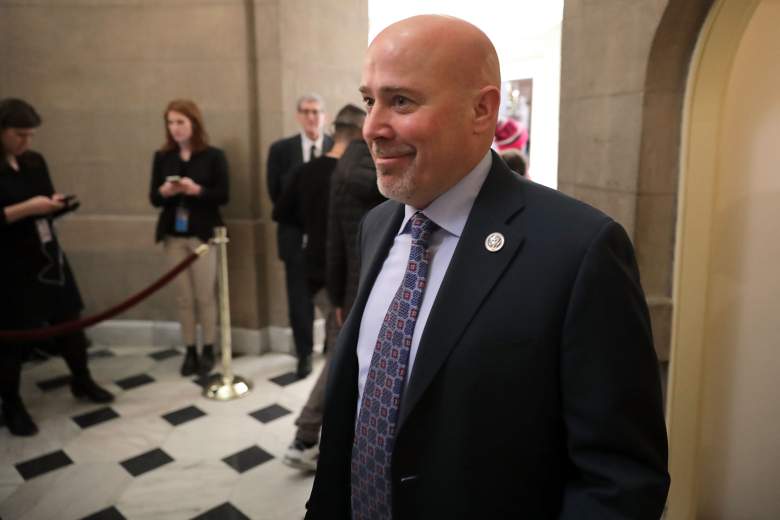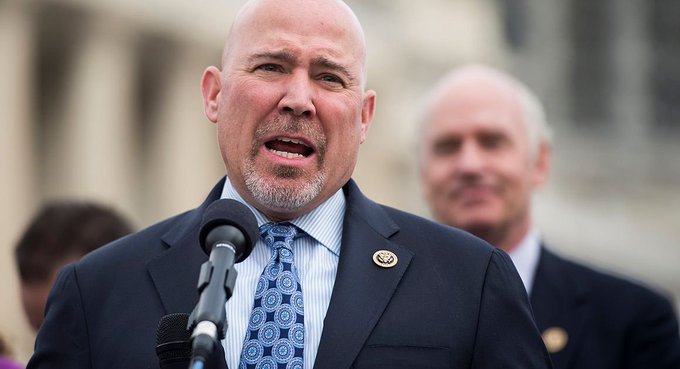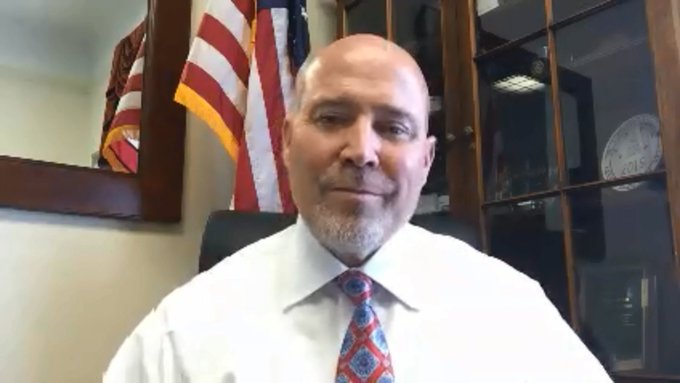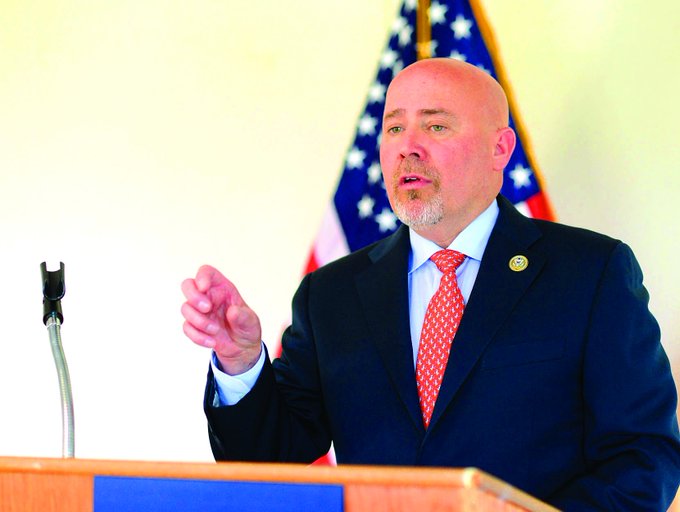
Rep. Tom MacArthur (R-NJ) (Getty)
Repealing Obamacare and replacing it with the American Healthcare Act is reportedly back on the table.
The conservative House Freedom Caucus announced on Wednesday that it has decided to support a revised version of the GOP’s healthcare plan. That comes roughly one month after the same group said it didn’t endorse the first draft of the bill because it didn’t go far enough to get rid of former President Barack Obama‘s Affordable Care Act and would have caused 24 million people to lose health insurance.
The legislation is back on table in large part because of Rep. Tom MacArthur (R-New Jersey) and Freedom Caucus Chairman Mark Meadows (R-North Carolina). The two brokered an amendment dubbed the “MacArthur Amendment, that gives the bill arguably its best option of fully repealing Obama’s staple achievement while in office and was signed in 2010.
The Freedom Caucus released a statement shortly after supporting the revised version.
While the revised version still does not fully repeal Obamacare, we are prepared to support it to keep our promise to the American people to lower healthcare costs. We look forward to working with our Senate colleagues to improve the bill. Our work will continue until we fully repeal Obamacare.
Although the new version doesn’t fully comply with the caucus’ wishes, the MacArthur Amendment does a number of things to rid the health care system of its provisions.
Here’s what you need to know about the MacArthur Amendment:
1. It Would Allow States to Request Waivers of Pre-Existing Conditions
MaCarthur Amendment by Chris on Scribd
With the MacArthur Amendment, states would be able to end some of the previous protections from pre-existing conditions.
A big part of the amendment is that the law would allow states to request waivers of pre-existing conditions protections, effectively weakening ObamaCare’s reforms.
That means that if the AHCA were to pass, it would restore law that was in place before ObamaCare. As part of the amendment, states could get approval for their waivers within three months if they say that the reason for the request is to lower premiums or improve coverage levels.
That includes loosening the benefits that insurers must cover in their policies as well as the ban on allowing insurers to charge more because of a person’s health background.
The requirements for the waiver to be submitted to the Department of Health and Human Services are as follows, as listed on HealthAffairsBlog.org:
* Be submitted in the time and manner required by HHS;
* Describe how the waiver would: Reduce average premiums for health insurance coverage in the state; Increase insurance enrollment; Stabilize the market for insurance coverage; Stabilize premiums for people with preexisting coverage; or increase the choice of health plans in the state;
* Specify the period for which the waiver would be effective
* Specify the higher age ratio that the state intends to allow;
* Specify the essential health benefits the state intends to require
* If the state allows health status underwriting for people who fail to maintain continuous coverage, demonstrate that it has a program in place that meets the requirements described above, which must remain in place for the duration of the waiver.
But MacArthur has said that no state — under any circumstances — will ever get a waiver for pre-existing condition protections.
But as CNN reported, health policy experts say that the amendment “would greatly affect those who are sick or have had medical issues in the past.”
The amendment would also give insurers the option to charge consumers in their 50s and 60s more than younger ones.
2. It Would Allow States the Choice of Opting Out of the Essential Health Benefits
One of the things that the ACA did was require insurance plans to cover a list of 10 “essential health benefits.” Those included doctors’ services, inpatient and outpatient hospital care, prescription drug coverage, pregnancy and childbirth, mental health services and more.
In addition, under the ACA, healthcare plans must offer dental coverage for children, with adults being optional.
With the amendment in place, states would have the opportunity to essentially opt out of that requirement if they desired to do so.
3. It Would Keep Many of the Provisions As Laid Out in the 1st AHCA Draft

Speaker of the House Paul Ryan (R-WI) (Getty)
Much of the concern with the first draft of the AHCA was that more than 24 million people would be uninsured by 2026. The amendment doesn’t seem to be affected by that aspect of it.
In addition, the amendment keeps in tact expansive cuts to the Medicaid program, which have been estimated to be $839 billion over the next decade. It would end the Medicaid expansion and restructure the program, switching it into a block grant.
More increases in premiums and deductibles would be likely if the bill were to pass, as well as out-of-pocket costs. Reports say that they would increase by an average of $3,600 for current ACA customers.
The MacArthur Amendment would keep coverage on parents’ plan up to the age of 26 and give consumers guaranteed renewability of coverage.
4. It’s Unclear If the Amendment Would Change the Vote Total
Even though the House Freedom Caucus members issued their support of the revised bill, there’s not much telling what that does to the net vote total on Capitol Hill.
Meadows has been actively working to help the new form of the bill gain support, telling CNN that the amendment will go up for debate before a final decision is made in terms of a potential vote.
But most members of Congress are still in the dark about what the amendment would do, except for what’s been reported by news outlets.
5. Reports Say the White House Is Considering an April 28 Vote
With the new amendment to the bill in place and a new plan for healthcare moving forward, there is talk that the White House may push for a vote Friday, April 28.
A report by Axios said that the House whip team is “counting moderate votes and gauging support within the caucus.”
Republican Study Committee Chairman Mark Waller told Axios that the Friday vote isn’t “outside the realm,” adding that things are “trending that direction.”






